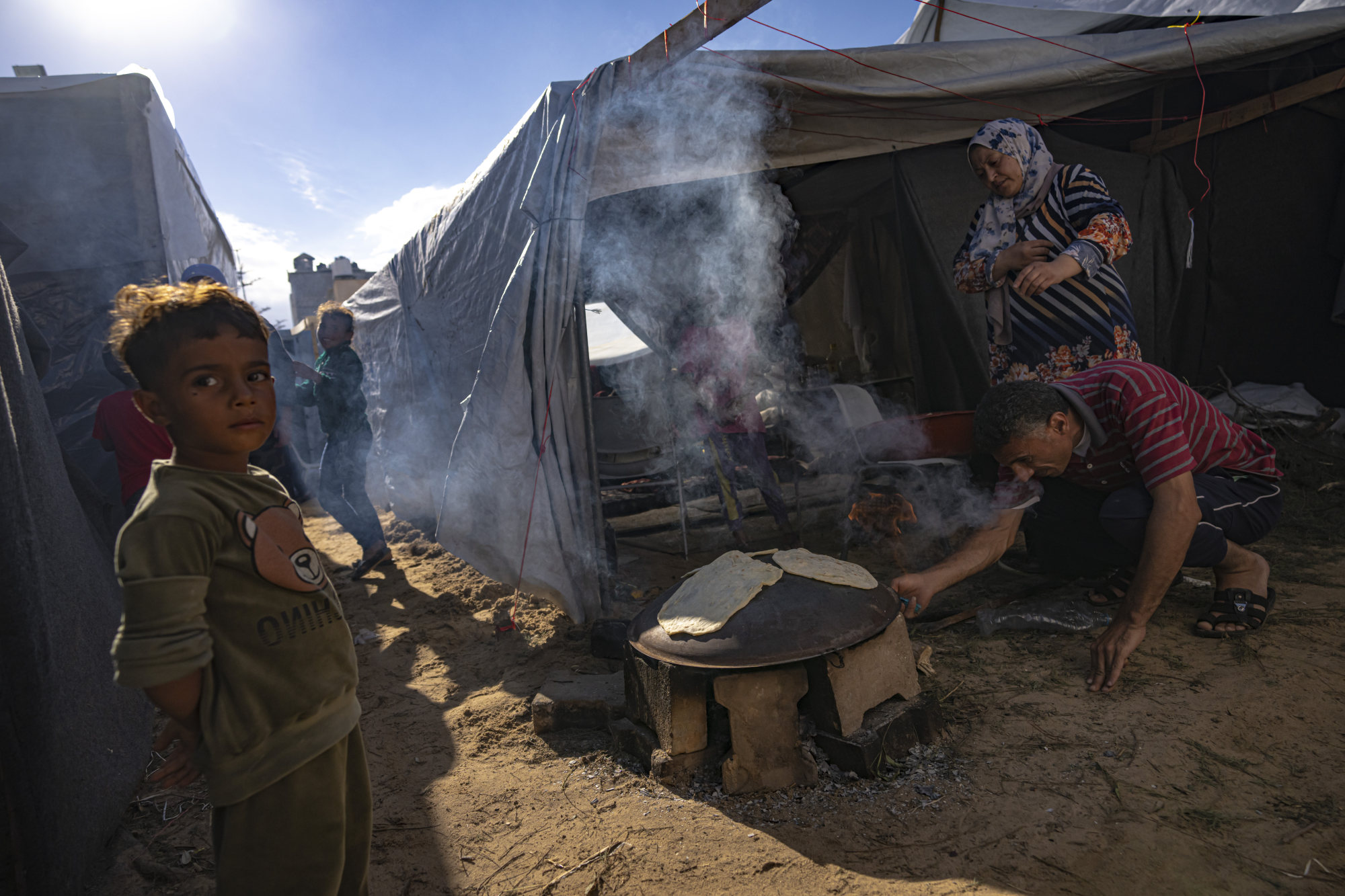The head of the UN agency for Palestinian refugees said on Thursday he feared for civil order in Gaza after communications blacked out again amid dire fuel shortages.
“Gaza is again in a total communication blackout and … it is because there is no fuel,” UNRWA chief Philippe Lazzarini told a press conference in Geneva.
The Palestinian telecoms company Paltel confirmed the blackout.
“All telecoms services in Gaza Strip have gone out of service as all energy sources sustaining the network have been depleted, and fuel was not allowed in,” it said on X, formerly Twitter.
The announcement came a day after a truck carrying 23,000 litres of fuel entered Gaza, marking the first fuel delivery to the Palestinian territory since the war between Israel and Hamas erupted nearly six weeks ago.
Israel has vowed to eradicate Hamas after its militants carried out unprecedented attacks on October 7, killing 1,200 people, most of them civilians, and taking around 240 people hostage, according to Israeli officials.
The Israeli military says 51 of its troops have been killed in Gaza since fighting began.
Israel’s relentless bombardment and ground offensive in Gaza has killed more than 11,500 people, also mainly civilians and including thousands of children, according to the Hamas-run health ministry.
What lies ahead as Israel sets sights on southern Gaza in next phase of war?
What lies ahead as Israel sets sights on southern Gaza in next phase of war?
Israel has also imposed a near-total siege on Gaza, with little food, water, medicines and other aid going in, and no fuel besides the single truckload this week.
Israel fears Hamas will use fuel for weapons and explosives.
But aid agencies have repeatedly underlined the desperate need for fuel – used to power hospital generators and purify drinking water.
Lazzarini pointed out that due to the lack of fuel, 70 per cent of residents in southern Gaza can no longer access clean water, and “we have sewage starting to flow in the streets”.

The one truckload of fuel allowed in was far from enough, he said, cautioning that UNRWA’s own operations were on the verge of collapse.
The impacts of the siege were so bad, he said, he believed “there is a deliberate attempt to strangle our operation and paralyse the UNRWA operation” in Gaza.
“We need fuel, fuel and fuel,” he said. “Today, there is no longer any fuel available in the Gaza Strip – or at least not accessible for UNRWA.
“If the issue of the fuel is not addressed, we run the risk to have to suspend the entire humanitarian operation.”
UN Security Council calls for pauses in Gaza fighting after 4 failed votes
UN Security Council calls for pauses in Gaza fighting after 4 failed votes
He warned the siege could soon “become the main reason why people would die and be killed in the Gaza Strip”.
Lazzarini voiced shock over what he witnessed during a recent visit to a UNRWA school he said used to be filled with children eager to learn and that has been transformed into an overcrowded shelter for displaced people.
“The children were pleading for a sip of water, or for a loaf of bread,” he said.
“It is so heartbreaking to be in a situation where people have been so quickly stripped from their dignity that they start to beg for water,” he said.

Lazzarini warned that the fresh blackout was expected to only complicate matters further, blocking UNRWA staff from communicating with each other.
Amid a previous communications blackout, he pointed out, hundreds of people “went into our warehouse and took whatever was available”.
“When you have a blackout and you cannot communicate with anyone any more … that triggers and fuels even more the anxiety and the panic,” he said.
“This can provoke or accelerate the last remaining civil order that we have in the Gaza Strip.”

